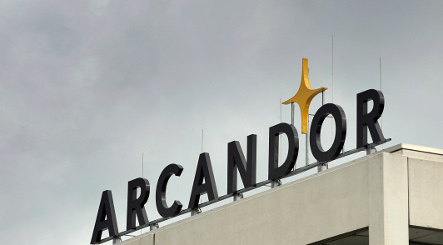The Economy Ministry said a government committee had decided against the state guarantees worth €650 million ($900 million) to help it refinance loans due later this week.
German Finance Minister Peer Steinbrück had said earlier on Monday that the retail group, which owns the Kardstadt chain and Thomas Cook, could go bust.
“A bankruptcy is not totally excluded,” Steinbrück told ARD television. He said “shareholders must assume their responsibilities” with respect to the group’s long-running problems.
“Suppliers and property owners should also be solicited,” he added after press reports said Arcandor was paying excessive rents on some stores.
Arcandor, which owns 52 percent of the travel group Thomas Cook, already said it could file for insolvency on Monday unless it obtains €437 million in direct loans from the government.
Shares in the retailer plunged in early trading on the Frankfurt stock exchange, losing a third of their value, 33.3 percent, to €1.26 while the MDAX index on which they are traded was off by 0.24 percent overall.
Arcandor has two dominant shareholders, the Oppenheim and Schickedanz families, each of which owns around 30 percent of the group. The company wants to tap a government fund set up to help companies hit by Germany’s worst postwar slump.
Arcandor is also negotiating a possible merger however with German rival Metro, the biggest German retailer and owner of the Kaufhof chain, though the talks have run into obstacles.
Arcandor employs 50,000 staff but its call for state aid has left many observers cold because its was already facing problems before the global economic crisis slammed Europe’s biggest economy in mid 2008.
“We are asking for the same treatment (as Opel), any rejection would be a catastrophe,” works council head Hellmutt Patzelt was quoted by the daily Tagesspiegel as saying on Monday.
The government, which recently backed a plan to save automaker Opel, said that was an exceptional operation and that Arcandor must take responsibility for poor management.
The European Commission has also expressed hostility towards state aid for the German retailer.
German media reports said on Sunday that Arcandor has stopped paying rent on its department stores – owned by a group of investors led by US bank Goldman Sachs – on June 1.
Around €600 million worth of loans to the retailer come up for refinancing on Friday.



 Please whitelist us to continue reading.
Please whitelist us to continue reading.
Member comments